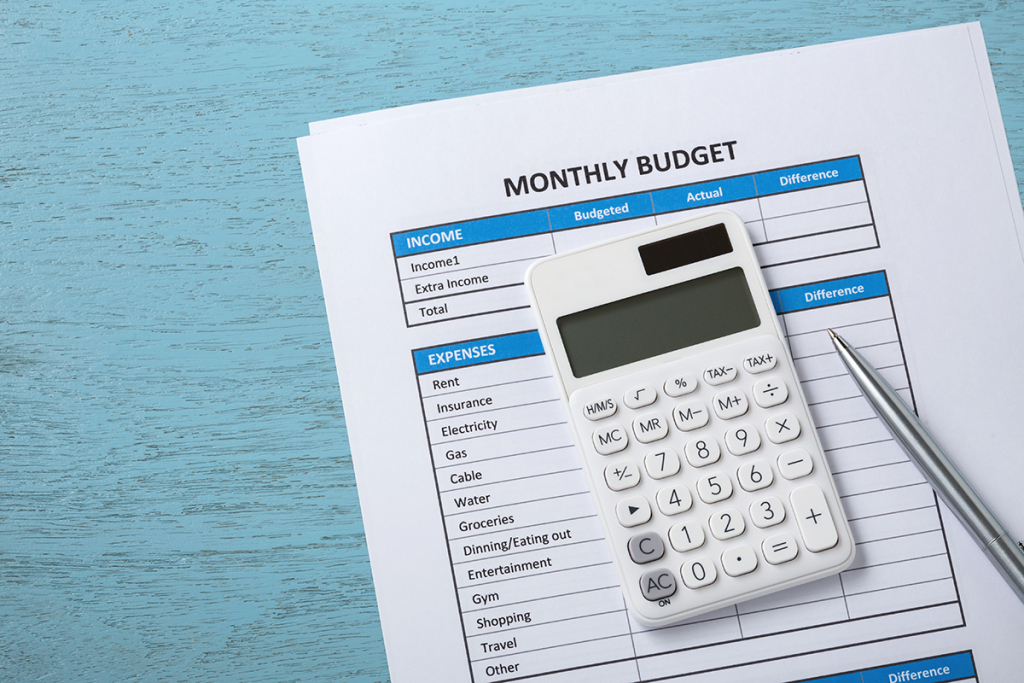10 budgeting mistakes you’ve probably made…and how to fix them
Most of us have made mistakes when it comes to budgeting. After all, it can be really tricky to create the perfect budget and stick to it. So, what can we do to set it up differently and stay on course?
Let’s look at some common budget mistakes and ways to avoid them, so you can quickly take back control of your finances.
1. Having no budget goals
Why are you budgeting? Is it to live within your means, save for retirement, build an emergency fund, pay off debts or get married? If you don’t have a goal, it will be difficult to be incentivized to stick to even the best of budgets. Establish your goal, set a workable budget and keep to it.
2. Keeping the same budget from year to year
Circumstances change, so you should be looking to update your budget every six months or so. For example, if you get a raise or take a drop in pay, amend your budget so you save more or less, accordingly.

3. Underestimating costs
Budgeting way too little for certain categories can send your budget out of whack before you’ve even got going. Look at your expenses closely and work out the monthly average cost for each item.
4. Not keeping your eye on spending
If you don’t closely monitor your spending, chances are you’ll overspend and blow your budget. Budgeting apps can help overcome this problem, or you could switch to using cash. Have one category for entertainment, another for clothes shopping, one for groceries, etc. When the money runs out, you can’t spend again until the new budget period.
Related: 5 small changes to grow your savings today
5. Skipping an emergency fund
If you don’t include emergency fund savings, you’re setting up your budget for failure. Without an emergency fund, if a large expense comes along such as a leaky roof or broken water heater, your budget will be blown out of the water. An emergency fund allows you to absorb large, unexpected expenses without derailing your budget.
6. Not expecting the unexpected
No budget is perfect. Allocating every cent of income to an expense means something will probably come along to make a mess of your plans. Add $50 to 100 to your budget for surprises so you never go over budget. At the end of the month, you can add any unused amounts to your emergency fund.

7. Forgetting infrequent expenses
It is very common to forget large but irregular expenses. These include birthday presents, vacations, subscriptions and professional association fees. To avoid this, review your expenses in fine detail for the last 12 months (check your bank and credit card statements as well as searching your inbox for emailed receipts) and make sure that every bit of expenditure is included in your budget.
8. Neglecting savings
Many people’s budgets will prioritize essentials first, followed by non-essentials and then savings. Putting your savings last could set you up for failure. To avoid this, make savings your second priority after essentials, and aim for a target of between 10 to 20% of your income. Make an automatic contribution to your savings account to guarantee that it happens. Learn about making pre-authorized contributions (PACs) here.
9. Making your budget too strict
If you cut out too much fun stuff, the lifestyle change will be a hardship and will increase the chances of you giving up. Cut back on a few things at a time, so you can get used to a more frugal lifestyle without losing all the enjoyable activities you look forward to throughout the year.
10. Not committing to the budget together
If you’re part of a couple, both of you need to be fully committed to the budget. Having one of you make all the necessary spending cuts while the other blows the budget apart will lead to failure. Commit to the budget together and check on spending every month.
Getting back on track
Your ACU financial advisor can help you to revisit your budget and give you strategies for sticking with it and achieving your budget goals. Book an appointment today and let’s start putting your budget back on track.
Up Next
Celebrating the 10th anniversary of student-run credit union
Just over 10 years ago, a survey circulated at Winnipeg’s Technical Vocational High School. The results showed that students at the school, commonly known as Tec Voc, felt short-changed—they were…
Kilter Brewing Co. serves up craft beer and community connection in St. Boniface
Deep in the heart of St. Boniface, Kilter Brewing Company is a hidden treasure—an oasis for Winnipeggers to escape their day-to-day routines, enjoy craft beer and connect with their community….
How to use a mortgage calculator to budget better
Learn how to use ACU’s mortgage calculator to figure out how much mortgage you can afford, and what budget you should set before you start house hunting. A mortgage lender…




